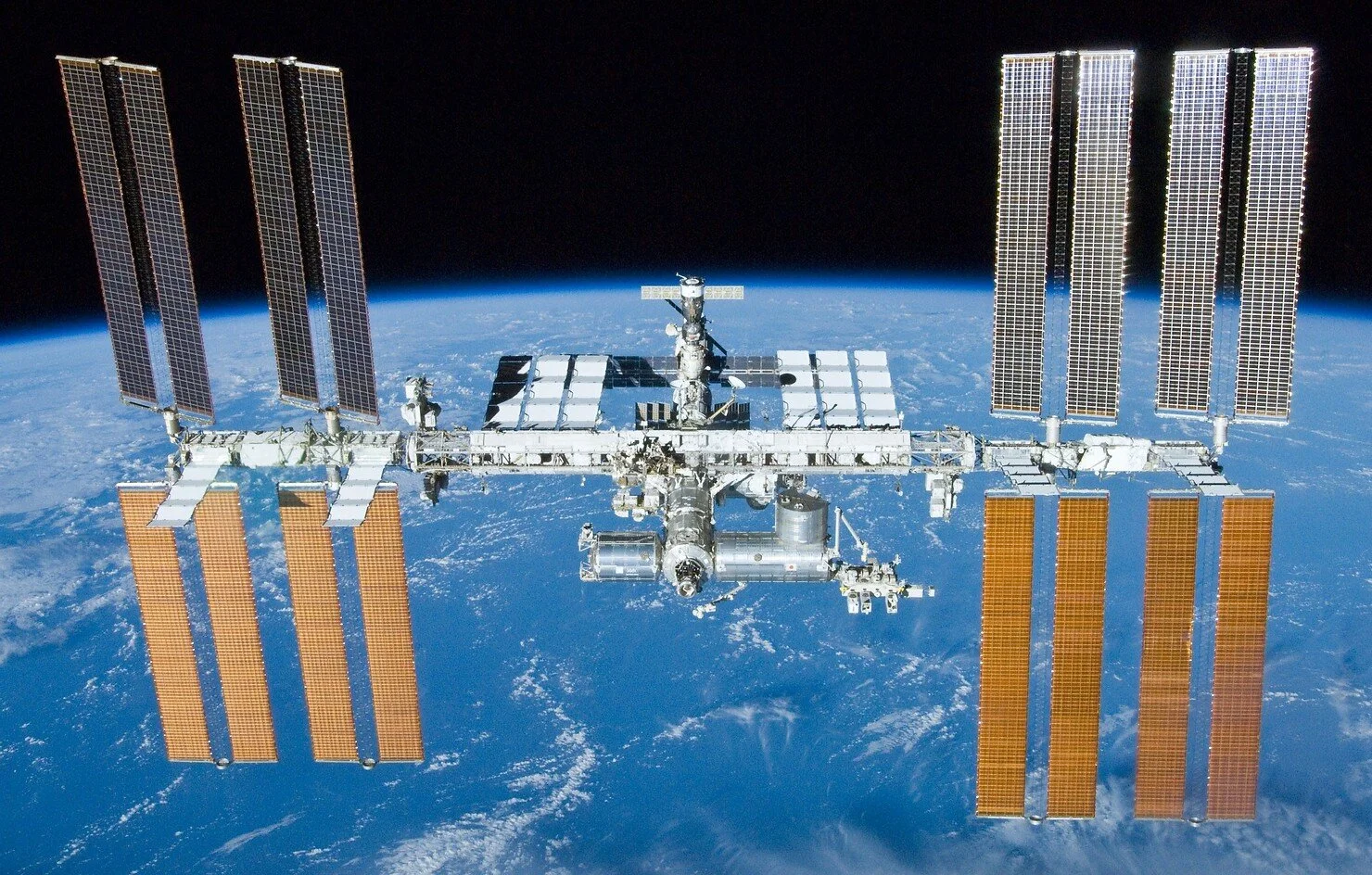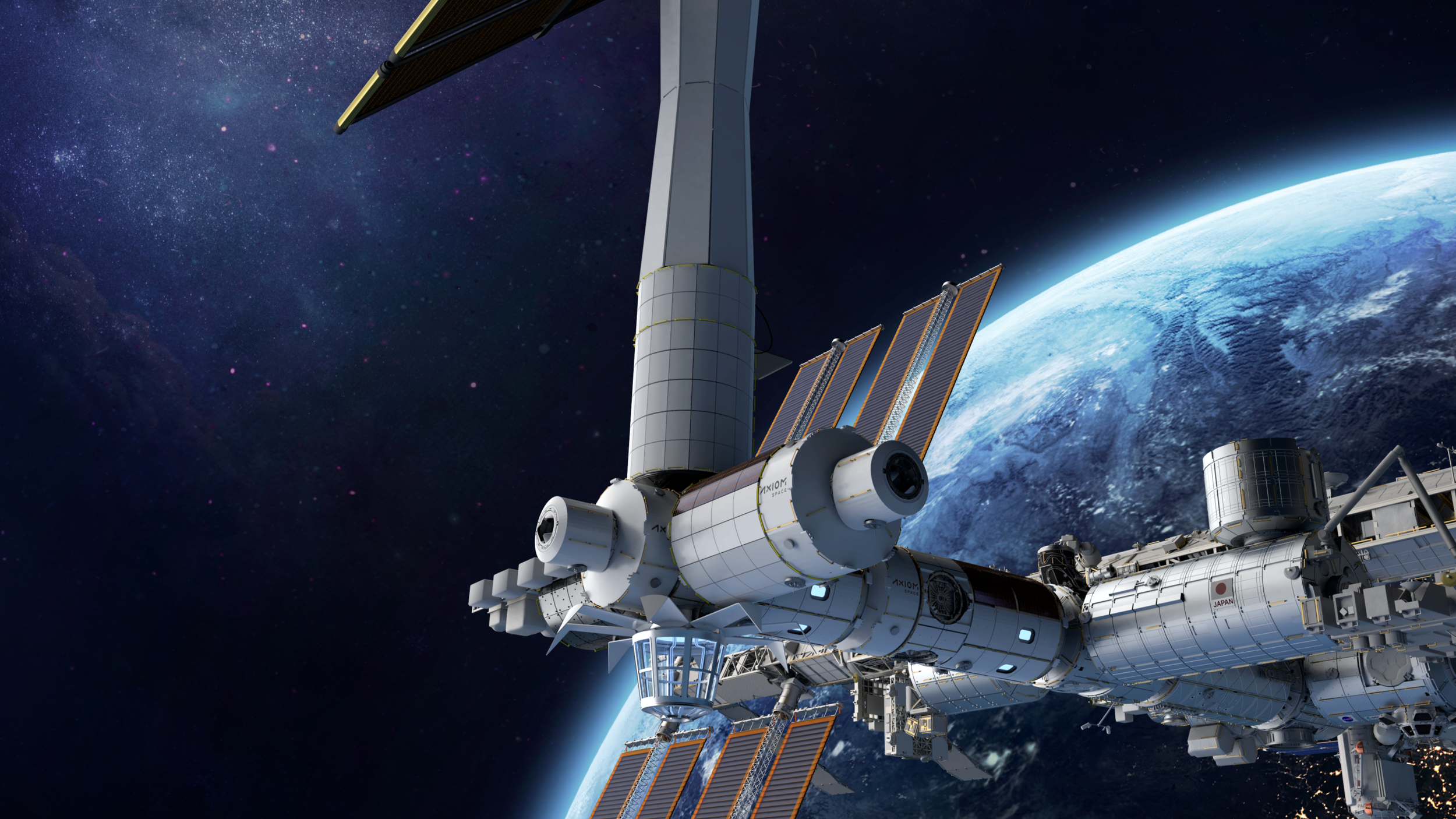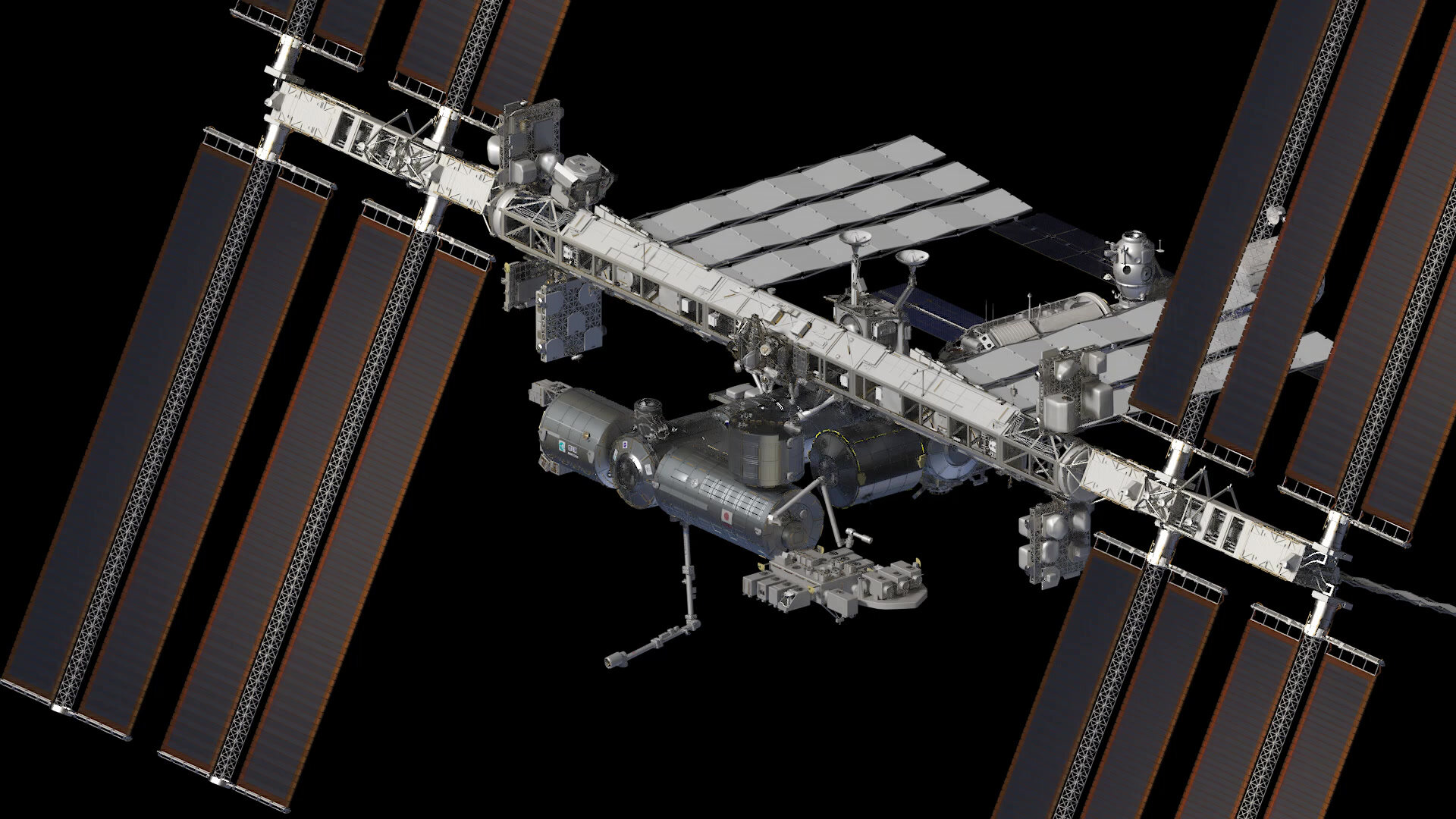Axiom Space Remains Central Figure In Private Spaceflight Among Multiple Endeavors
White House Urges More Commercial Activities in Space
The White House has taken another small step towards its larger leap to commercialize space laboratory activities, even as NASA struggles to put current commercialization plans into place.
NASA Pushes to Commercialize Near-Earth Space
The next logical step in humans’ exploration of space is to start having more civilian ventures—and commercial, money-making ones—in outer space. NASA is onboard with this step. It has made it a priority to seed and encourage a strong, bustling, and competitive low Earth orbit (LEO) economy with itself as a strong player and user of commercial services and equipment. To NASA, LEO ends at about 1,200 miles above Earth, but that’s where the International Space Station (ISS) orbits and it is relatively easy to get up into LEO and back.
CNBC: "One of those companies is Axiom Space"
Following the successful launch and docking of SpaceX's Crew Dragon on its Demo-2 mission, all eyes turned to the possibilities for private space travel it opened. A defining element of these "what's next" focuses has been Axiom Space, which plans to fly its first private crew in late 2021.
In his exploration of what Demo-2 really means, CNBC's Michael Sheetz devoted significant attention to Axiom's role in the new era of human spaceflight.
Axiom Space key element of New York Times discussion of 'new era of spaceflight' after Demo-2 launch
The New York Times' coverage of the success and implications of SpaceX and NASA's Demo-2 crewed launch to the International Space Station included a look at what's next in a new era of human spaceflight. Namely, that Axiom Space has already made an agreement with SpaceX to fly the first Axiom crew to ISS -- the first fully private crew to ever undertake such a mission.
Axiom Space central as NASA outlines the near and far future of the space station
During a meeting of the NASA Advisory Council in May, current International Space Station program manager Kirk Shireman presented the near- and long-term future of the ISS. In the plans: an expansion of the station with commercial modules designed and developed by Axiom Space, which is led by Michael Suffreidni -- Shireman's predecessor as ISS PM.
In January, NASA selected Axiom's proposal to use the forward port of the Node 2 "Harmony" module to begin constructing the 'Axiom Segment' of ISS, which will later detach and operate as a free-flying private space station.
NASA Spaceflight's coverage of the meeting:
Axiom, SpaceX deal for mission to ISS featured on CRS-20 webcast
On March 6, SpaceX successfully completed its 20th International Space Station cargo resupply mission, the final flight of the original Dragon capsule.
With Crew Dragon soon to come online, the SpaceX webcast of the launch featured a discussion of the recently-signed deal with Axiom Space to send Axiom's first crew to ISS as soon as next year.
Axiom Space plans first-ever fully private human spaceflight mission to International Space Station
HOUSTON – Today Axiom Space announced it is planning history’s first fully private human spaceflight mission to the International Space Station.
Axiom has signed a contract with SpaceX for a Crew Dragon flight which will transport a commander professionally trained by Axiom alongside three private astronauts to and from the International Space Station. The mission, set to launch as soon as the second half of 2021, will allow the crew to live aboard the ISS and experience at least eight days of microgravity and views of Earth that can only be fully appreciated in the large, venerable station.
“This history-making flight will represent a watershed moment in the march toward universal and routine access to space,” Axiom CEO Michael Suffredini said. “This will be just the first of many missions to ISS to be completely crewed and managed by Axiom Space – a first for a commercial entity. Procuring the transportation marks significant progress toward that goal, and we’re glad to be working with SpaceX in this effort.”
This is the first of Axiom’s proposed “precursor missions” to the ISS envisioned under its Space Act Agreement (SAA) with NASA. Discussions with NASA are underway to establish additional enabling agreements for the private astronaut missions to ISS.
Axiom plans to offer professional and private astronaut flights to ISS at a rate of up to two per year to align with flight opportunities as they are made available by NASA, while simultaneously constructing its own privately funded space station.
“Since 2012, SpaceX has been delivering cargo to the International Space Station in partnership with NASA and later this year, we will fly NASA astronauts for the first time,” said SpaceX President and Chief Operating Officer Gwynne Shotwell. “Now, thanks to Axiom and their support from NASA, privately crewed missions will have unprecedented access to the space station, furthering the commercialization of space and helping usher in a new era of human exploration.”
With its team’s vast experience in human spaceflight, Axiom serves as a one-stop shop overseeing all elements of its missions. In addition to contracting with SpaceX for a Crew Dragon vehicle to transport its crew to the ISS, Axiom’s turnkey service for the mission – two days in transit and at least eight days aboard the ISS – includes training, mission planning, hardware development, life support, medical support, crew provisions, hardware and safety certifications, on-orbit operations and overall mission management.
NASA recently selected Axiom’s proposal to attach its space station modules to the ISS beginning in the second half of 2024, ultimately creating a new ‘Axiom Segment’ which will expand the station’s usable and habitable volume. When the ISS reaches its retirement date, the Axiom complex will detach and operate as a free-flying commercial space station.
By serving the market for immediate access to space while building the future platform for a global user base, Axiom is leading the development and settlement of low Earth orbit now and into the future.
About Axiom Space
Axiom Space was founded in 2016 with the aim of creating humanity’s home in space to ensure a prosperous future for everyone, everywhere. While building and launching the Axiom Segment of the International Space Station to one day form the world’s first commercial space station, Axiom provides access to the ISS today by conducting crewed missions for professional and private astronauts. More information about Axiom can be found at www.axiomspace.com.
For media inquiries:
Beau Holder
Scott Manley: NASA and Axiom Space designing commercial expansion of Space Station
It's been four years since NASA first seriously suggested the idea of commercial expansion of the International Space Station, and at the end of January they announced an agreement with Axiom Space to begin designing the extension with launches happening possibly as early as 2024.
Renowned space YouTuber Scott Manley covers the news.
Axiom Space and Philippe Starck to create commercial space station at the ISS
The National Aeronautics and Space Administration (NASA) has chosen a team led by Axiom Space with design by Philippe Starck to create a commercial space station that will host professional astronauts and private explorers.
The decision follows a solicitation process that will see the Axiom-led team granted access to a node of the International Space Station (ISS) to which it will be able to attach for construction a new habitable pod that could ultimately replace the ISS.
More from CLAD News for architects, designers, investors and developers:
Axiom Space selected by NASA for access to International Space Station port
The human dream of universal access to living and working in space has drawn one step closer.
On Monday the National Aeronautics and Space Administration selected Axiom Space as the winner of the NextSTEP-2 Appendix I solicitation, which sought to grant access to the International Space Station's Node 2 Forward port for a commercial space station that could ultimately serve as ISS' replacement.
Co-founded by stalwart space entrepreneur Dr. Kam Ghaffarian and former NASA ISS Program Manager Michael Suffredini, both of whom have in excess of 35 years of human spaceflight experience, Axiom plans to launch a node module, research & manufacturing facility, crew habitat, and large-windowed Earth observatory to form the "Axiom Segment" of the ISS. This new commercial platform will significantly increase the usable and habitable volume of the ISS, provide for novel avenues of research in areas such as isolation studies and Earth observation, and allow a gradual transfer of the innovative work being done on-station to prevent interruptions when the ISS is ultimately retired.
The company targets launch of the first module in the latter half of 2024.
"We appreciate the bold decision on the part of NASA to open up a commercial future in Low Earth Orbit," Suffredini said. "This selection is a recognition of the uniquely qualified nature of the Axiom team and our commercial plan to create and support a thriving, sustainable, and American-led LEO ecosystem.
"Axiom exists to provide the infrastructure in space for a variety of users to conduct research, discover new technologies, test systems for exploration of the Moon and Mars, manufacture superior products for use in orbit and on the ground, and ultimately improve life back on Earth. As we build on the legacy and foundation established by the ISS Program, we look forward to working with NASA and the ecosystem of current and future international partners on this seminal effort."
Central to the selection was the Axiom leadership team's extensive high-level expertise in human spaceflight management, space systems engineering and operations, utilization of microgravity, space finance, marketing, and law.
Ghaffarian founded Stinger Ghaffarian Technologies, which rose to become NASA's second-largest engineering services provider, training NASA's astronauts and operating the ISS. These functions are now carried on by KBR, which bought SGT in 2018 and joined the Axiom team as a subcontractor on the winning proposal.
"A commercial platform in Earth orbit is an opportunity to mark a shift in our society similar to that which astronauts undergo when they see the planet from above," Ghaffarian, Axiom's executive chairman, said. "Our goal is to advance the state of humanity and human knowledge. I am glad to see the Axiom team, with its advanced human spaceflight, engineering, and operations expertise, recognized for its potential to do just that and build off of ISS."
Team Axiom also includes Boeing, Thales Alenia Space Italy, Intuitive Machines, and Maxar Technologies.
Axiom was founded in 2016 with the purpose of expanding human civilization into Earth orbit. In addition to building and launching the Axiom Segment, the company will launch crewed flights to the ISS and later the ISS/Axiom complex at a rate of about two to three flights per year. Shortly before ISS is retired, Axiom will launch its large power platform to provide the Axiom Segment power and cooling that ISS previously provided.
When the ISS reaches its decommissioning date, the Axiom Segment will detach and continue as a free-flying, internationally available commercial space station. This station will have been built at a fraction of the cost of ISS, the elimination of whose operating costs will enable NASA to dive headlong into a new era of exploration.
"There is a fantastically steep learning curve to human spaceflight," Suffredini said. "The collective experience at Axiom is quite far along it. Because we know firsthand what works and what doesn't in LEO, we are innovating in terms of design, engineering, and process while maintaining safety and dramatically lowering costs."
Assembly Sequence: Watch the Axiom Segment of the ISS constructed module-by-module
NASA's announcement on Monday that it selected Axiom Space for access to the International Space Station's Node 2 Forward port began a new chapter in human settlement of Low Earth Orbit.
This animation depicts the stepwise process of attaching Axiom's modules to the ISS and constructing the future Axiom Station -- the world's first commercial space station.
Elite Traveler: Axiom Space President Michael Suffredini on the Next Frontier
Why should we look to the stars when there are so many problems on Earth? Michael Suffredini, NASA’s former International Space Station manager, firmly believes that exploring space will develop the technology we need to save our planet.
Who Will Build the First Commercial Space Station?
If everything goes according to plan, Houston-based Axiom Space may start sending people to space starting in 2021.
Bloomberg's "Giant Leap: Welcome to Your new Home in Space"
Spacefund Rising Star: Axiom Space
SpaceFund rated Axiom as the #1 Space Station Owner/Operator in its Reality Rating, which assesses the feasibility of space businesses’ plans given their business plan, technological readiness, leadership and financing.



















